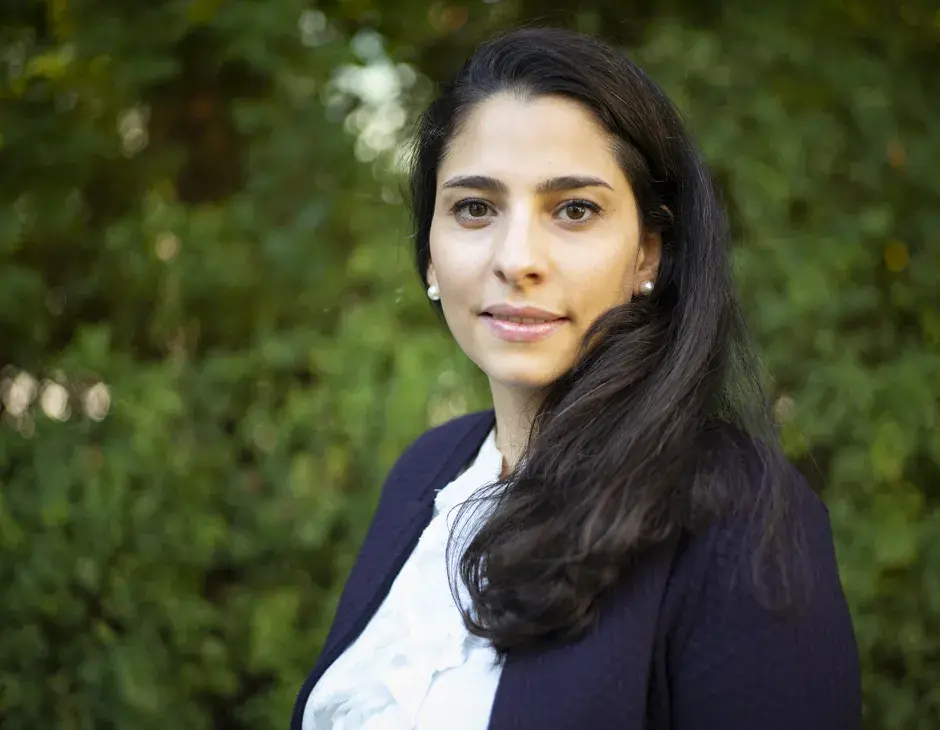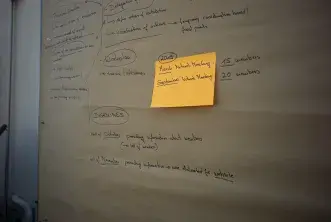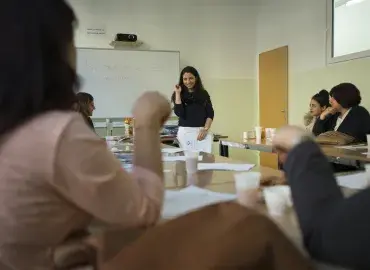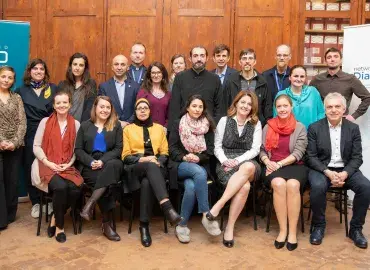Ruham Al-Bezra is a KAICIID Dialogue Facilitator
From your experience, how do you think religion can affect integration processes?
It can be good or bad, it depends on the person. For me, coming from a Muslim background, religion was not a problem. In fact, I usually explain how religion helped me to integrate, because in every aspect of our religion it is necessary to be integrated, while at the same time you have to keep your identity.
In my workshops, I don’t start with mentioning the role of religion in integration, but if someone mentions that integration is not possible because of religion, I explain why it is possible. I don’t think religion should be a problem in integration, we don’t have to include it consciously in the integration process, because it doesn’t stop it.
Sometimes, if very conservative people don’t do some things like the majority of the local population does, it still doesn’t mean that they are not integrated. For example, many protestant American people don’t swim with a bikini or topless, they all have one piece swimming suit and this is ok. And when an Arab woman doesn’t want to wear a bikini, some say she has to, others say it is not important.
For me, religion was not a problem. If I went out with a group where people were drinking alcohol and I was the only one not drinking, I had fun anyway. Some Christian Austrians also go out and don’t drink alcohol. Integration is about people living together in harmony and respecting each other’s way of life.
From your experience, how can interreligious dialogue contribute to integration?
It depends on the group and their background. Many people mix the traditions and attitudes with religion. When you have a group that values attitudes, it is harder to reach effective integration. For example, when you say that women shouldn’t work, it is more a cultural thing than a religious one. When you discuss it with the group that values attitude, it is difficult for them to accept this idea because the culture and society are forbidding a woman to work, not her religion.
With interreligious dialogue you have the opportunity to clarify opinions. If there are two different opinions in the group, you can focus on this issue and clear it from both sides, and from each side you will see how it can contribute to integration.
If everything depends on religion for someone, you could explain an idea through religion and talk about these things from the religious perspective because, through dialogue, you have the opportunity to talk and tell your perspective.
What are the challenges of interreligious dialogue in the integration process?
Sometimes there will be a conflict between people with opposing positions. When there are two absolutely different opinions, it is not easy to find a middle point. Sometimes if a conflict escalates, we have to just change the subject.
Also, we usually categorize people as good or bad, and it is difficult to accept the Other as someone as good as you.
In our workshops, sometimes we have people from different cultural and ethnic groups and they don’t want to engage in dialogue with each other. Unfortunately, some have dropped off in some cases.
Can you share a story that inspires you to continue working in this field?
Once we were talking about how to raise children, the school system in Austria, and how to get a place in school. One participant had a 15 year old son and after 3 months she found a school place for him. She was very happy. In this case, our dialogue for integration helped her find a place for her son.
Also, when I say I am Muslim and my kids and I practice our religion, this gives hope and motivation to some newcomers. It tells that you can be integrated even if you have a different culture and religion. I used to work in a school and it wasn’t easy for some Muslim parents to send their daughters to the swimming lessons. I talked to the parents and the teachers, and the issue was that the student didn’t feel comfortable to change in front of other children. I suggested the option for her to go to a changing room and come back later to the group and this made a difference. This was what she needed to attend the swimming classes. This is a clear example of how dialogue can make life easier.
In public discourse, religion is often seen as a limitation for integration, yet, academics and practitioners – some of…
Newly launched “Network for Dialogue” aims to support more effective integration policies in Europe
…




